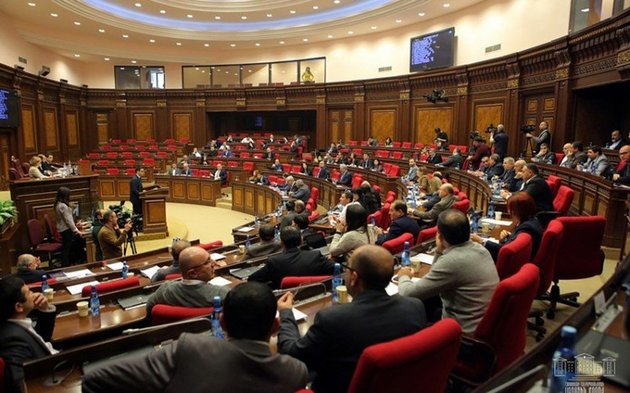In mid-October, local elections take place in Armenia. However, it is expected that the electoral campaign is going to be weak because Premier Nikol Pashinian’s party has won the main elections of 2021. Of course, the opposition will try to fight for local governments to prevent formation of Pashinian’s vertical of authority. At the same time, political activity of nationalists is gradually shifting toward the problem of unrecognized “NKR” as they have failed to win the parliamentary elections and to ruin reputation of the “people’s” Premier.
Tensions in the parliament are slowly easing because it’s not an effective way of political struggle to put sand in the wheels of any initiative of the ruling party. The opposition has no strong reason to take people to the streets as Pashinian’s administration is quickly covering holes in social policy. For example, it builds an alternative root on the road between Goris and Kapan. Thus, nationalists have to make a show of working to follow their main goal of criticizing Pashinian’s government. To reach the goal, the opposition dares to use the policy of identifying national enemies within.
Last week, MPs of Armenia Bloc tried to add the “Artsakh” word to a name of a commission on foreign relations. Naturally, the initiative was rejected by the parliamentary majority since the longstanding communication between the Armenian parliament and the unrecognized regime perfectly did without a special inter-parliamentary commission. Nevertheless, once again the incident revealed intransigence of two fronts of Armenian politics. However, the aim of a long-term political campaign of nationalists is to trap Pashinian and to make him “recognize” the illegal regime of “NKR.”
Armenia has never recognized the illegal regime in Karabakh. Recognition could damage reputation of Yerevan and “set up” its partners who have always recognized territorial integrity of Azerbaijan. It’s impossible to recognize “NKR” and the issue is beyond Armenian internal policy. However, small-scale clashes in the parliament are aimed at taking Pashinian up on that and exposing him as
“a traitor” who gets rid of Karabakh in the Armenian political agenda.
At the same time, the opposition ignores obvious hypocrisy of former Armenian authorities whose interests are promoted by nationalists. They try to convince the society that Pashinian is no different from Robert Kocharyan, except foreign policy of the current Premier is unable to show power. Simultaneously, revanchists try to ruin Pashinian’s reputation in the eyes of Armenians who have stayed in Karabakh as previously the “people’s” Premier wanted to deprive leaders of Karabakh separatism of a political fiefdom.
On the other hand, the opposition loses the opportunity to maneuver because its actions are directly provocative. According to MPs of Armenia Bloc, their initiative had to become a message to Azerbaijan that “the Karabakh issue was still Armenia’s priority.” It’s hard to understand what message can we talk about after the war, killing thousands of soldiers, devastating defeat, and peace reached thanks to mediators? It seems nationalists inadequately interpret results of the last-year bloodshed.
















